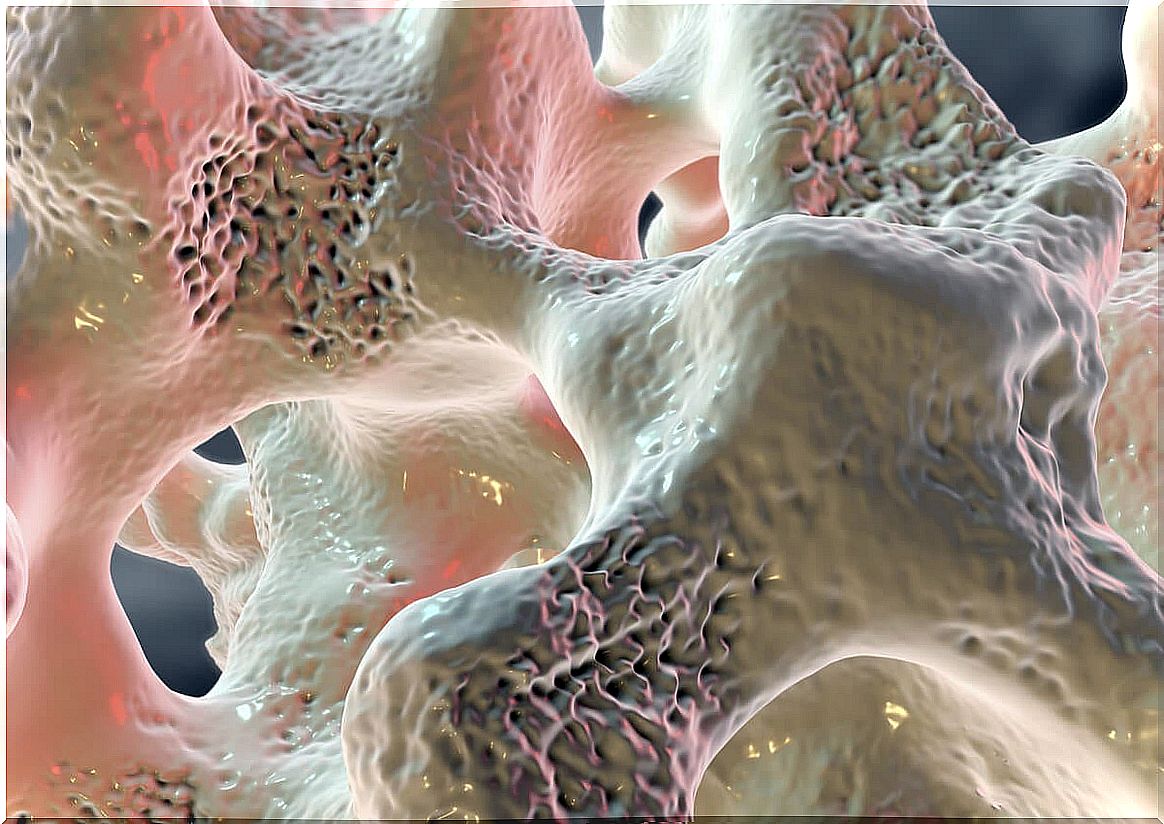Consequences Of Calcium Deficiency
Calcium deficiency is a nutritional deficiency that negatively impacts health. This mineral is one of the most abundant in the human body and it is necessary to ensure its contribution with food on a regular and continuous basis to avoid the appearance of defects in physiological processes.
Fortunately, many of the common dietary products contain calcium. Maintaining a varied diet ensures the entry of said nutrient in optimal quantities, although the supply of vitamin D must also be guaranteed to ensure its absorption.
However, although it is abundant in nature, there are people who suffer from calcium deficiency, so we are going to tell you what the consequences of this are and why it is important to monitor their intake. This is particularly important in menopause.
Calcium deficiency leads to osteoporosis
Osteoporosis is a characteristic disease of women who have entered menopause. It causes a progressive demineralization of the bones that increases the risk of fractures, which conditions the way of life of those who suffer from it.
Once the pathology has begun its progression, it is difficult to go back, so prevention is essential. The medications and treatments available try to stop the damage already done, but bone replacement is almost impossible.
Calcium deficiency during adulthood is considered a risk factor for increasing the chances of suffering from osteoporosis. This is stated by an investigation published in the journal Maturitas, in which a correct contribution of the mineral is linked to a reduction in the incidence of the disease.
In any case, it is essential to control the consumption of the nutrient so as not to overdo it. An exaggerated increase in intake leads to kidney stones. Therefore, the daily dose should not exceed 2000 milligrams.
In addition to calcium intake, frequent sun exposure or supplementation with vitamin D is recommended. This micronutrient participates in the absorption of the mineral and in bone metabolism. The administration of both substances together helps reduce the risk of fractures in adulthood, as certified by a study published in the journal Osteroporosis International.

Calcium deficiencies in athletes
Calcium is not only an important nutrient for sedentary individuals. It also plays an important role in the athlete’s body.
In addition to ensuring electrolyte balance, maintaining adequate levels of calcium in the body may reduce the risk of muscle cramps. It has even been speculated that supplementation with this mineral would decrease the incidence of leg cramps in pregnant women as well.
However, research published in the Journal of Research in Medicinal Sciences has not found a clear association. The suspicion stems from the intervention that calcium has in cellular metabolism, both in neurons and in myocytes (muscle cells).
Calcium is involved in the transmission of the nerve impulse. An excessive loss of this mineral in the athlete, through sweating, would condition muscle contractility and sports performance. For this reason, it is important to ensure the maintenance of electrolyte balance by consuming beverages rich in mineral salts when exercising, especially in situations of high temperatures.
Spasms or fasciculations
Another symptom of calcium deficiency in the diet is the appearance of muscle spasms or fasciculations. This is nothing more than a set of muscle contractions visible under the skin,
They appear spontaneously and involuntarily. It is a process that is not harmful to the body and in the case of experiencing this sensation there is no need to worry.
If the symptom recurs, and under particular circumstances, a consultation does not hurt. Pregnant women, for example, or hypertensive people, in spasms hide a major underlying problem that refers to blood circulation. It is not an emergency, but blood tests can be requested to study it.
Prevent hypocalcemia
To prevent these deficiency situations, it is important to adjust the calcium in the diet. Frequently including nuts, green leafy vegetables and dairy products is an effective strategy.
It should be remembered the importance of maintaining adequate levels of vitamin D to improve the assimilation of the mineral. Optimizing the production of this substance involves frequent sun exposure. Otherwise, you must ensure the regular intake of enriched oily fish, eggs and dairy products.
In the case of suspecting a vitamin D deficiency, it is advisable to go to a specialist to assess its supplementation. This situation can lead to an increased risk of diseases in the medium term.
Calcium deficiency and long-term complications
One of the main complications derived from calcium deficiency is osteoporosis. Although women are more prone to developing this pathology, it can also be found and diagnosed in men.
To reduce the risk, it is important to ensure a correct dietary intake through food, as well as to monitor vitamin D levels. Including vegetables and dairy products is a good option to prevent disease.









